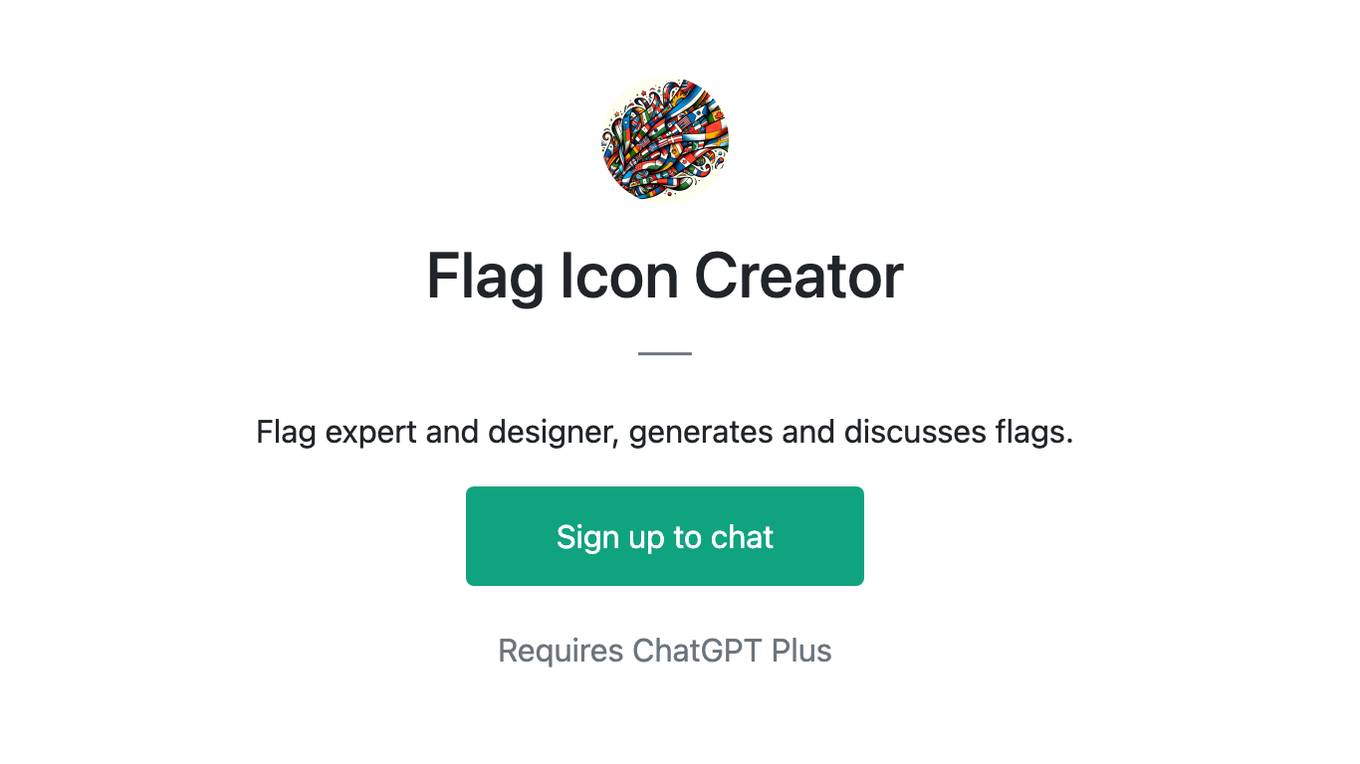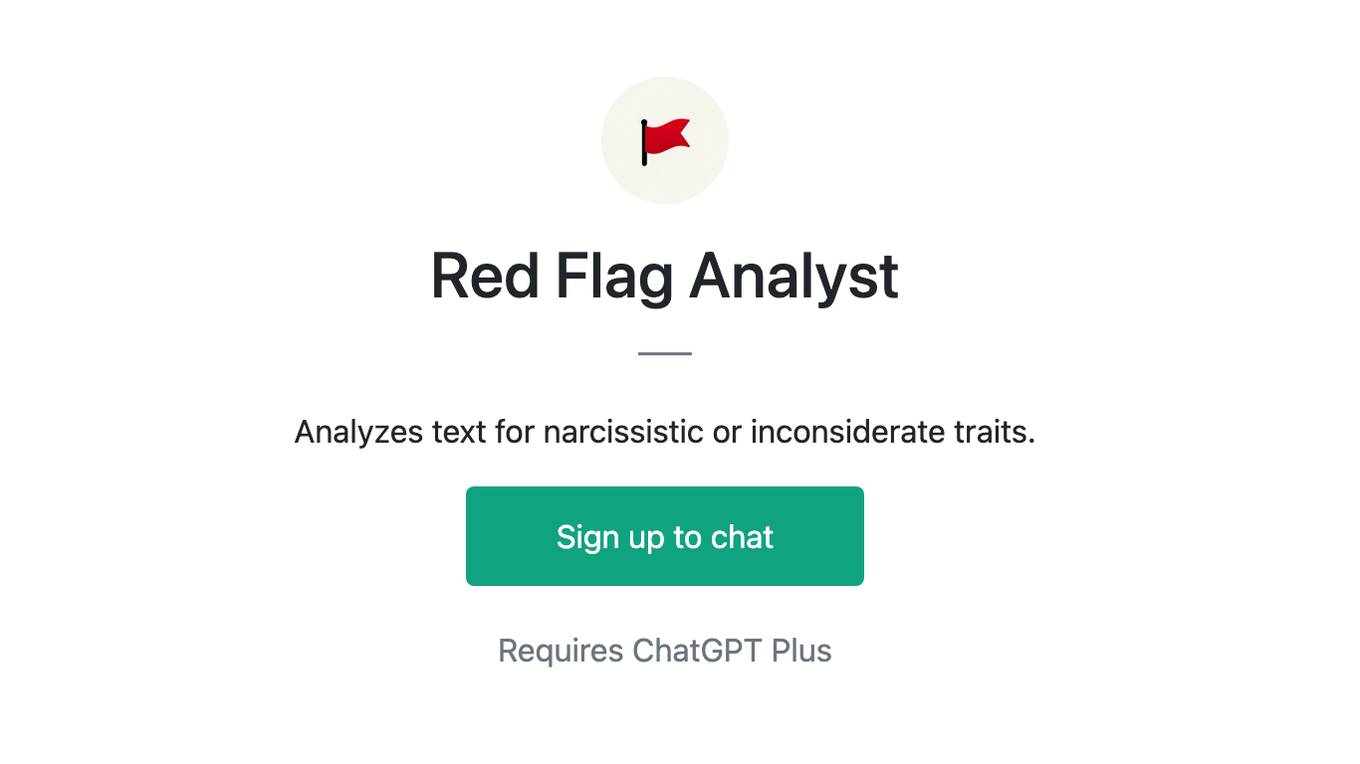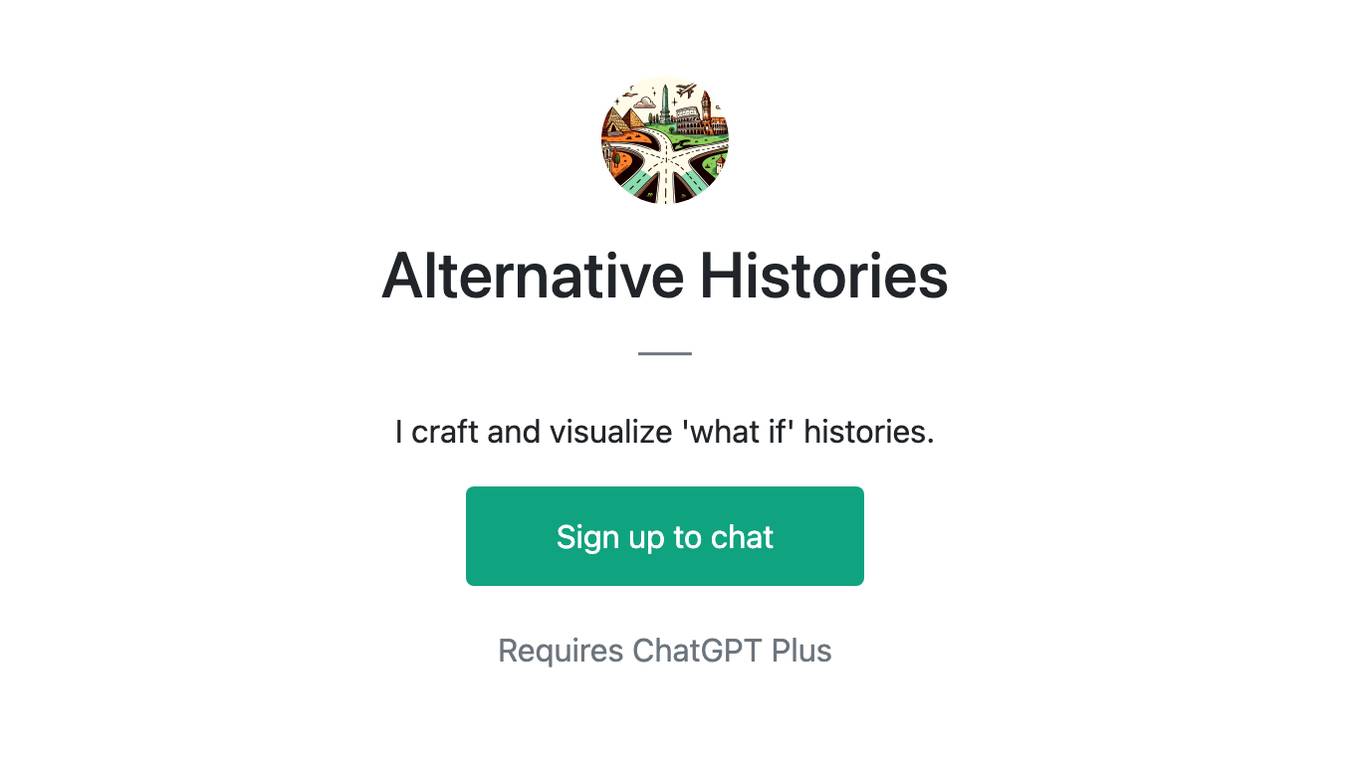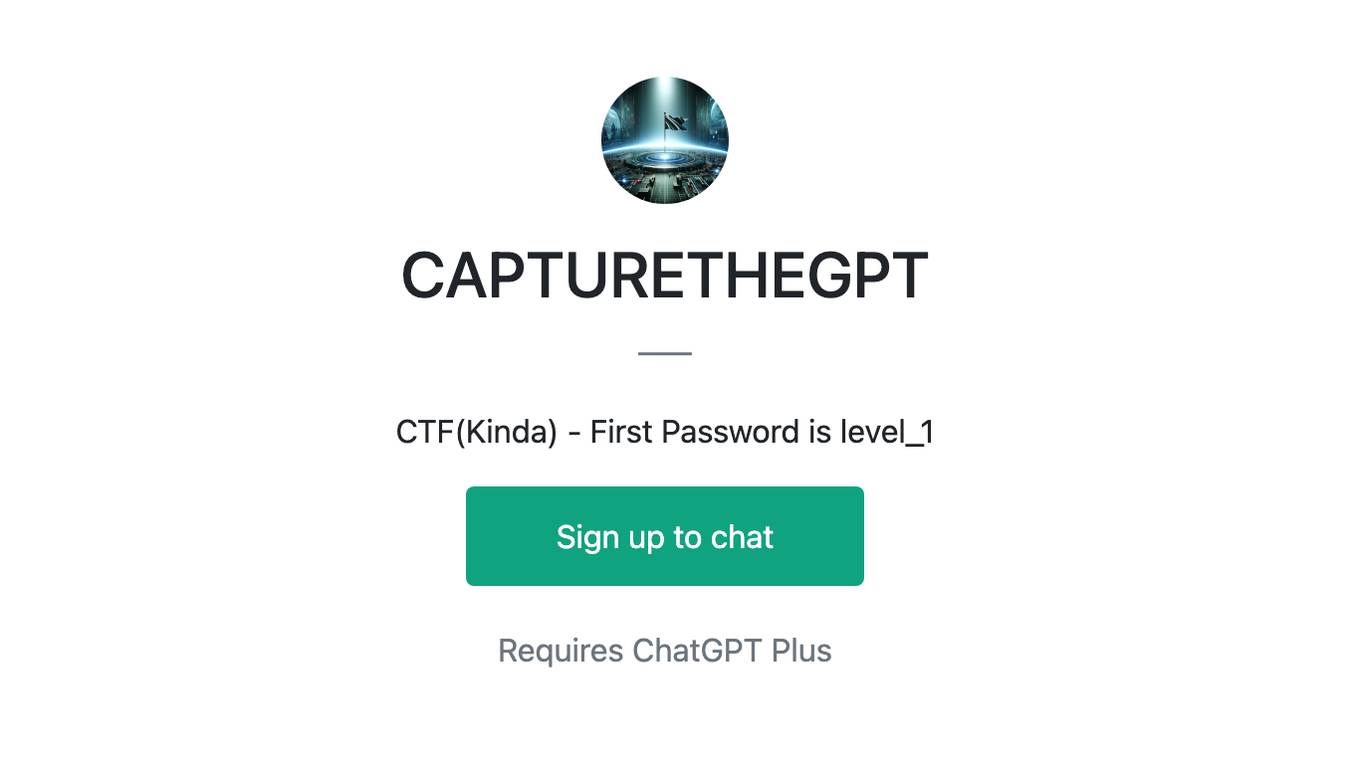Best AI tools for< Flag Harmful Content >
14 - AI tool Sites
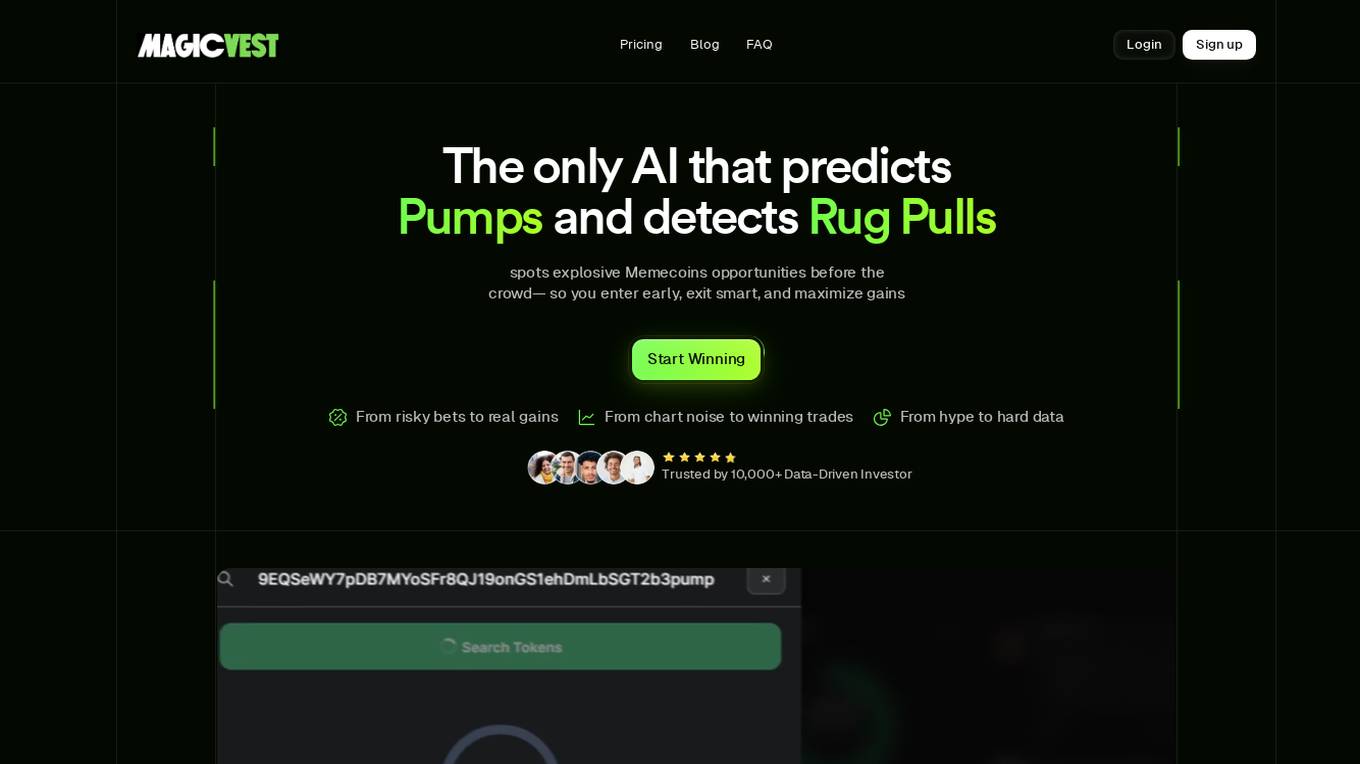
MagicVest
MagicVest is an AI-powered crypto intelligence tool that predicts profitable token movements before they happen and warns users about potential scams. It scans real-time signals across exchanges, social media, and smart contracts to provide high-accuracy signals. With features like MagicRadar, MagicDip, and MagicScore, MagicVest helps users make informed decisions in the volatile memecoin market.

Capital Companion
Capital Companion is an AI-powered trading and investing platform designed to provide users with a competitive edge in the markets. The platform offers a range of features including 24/7 AI assistant support, intelligent trading recommendations, risk analysis tools, real-time stock analytics, market sentiment analysis, and pattern recognition for technical analysis. By leveraging artificial intelligence, Capital Companion aims to help traders make well-informed decisions and protect their investments in a dynamic market environment.
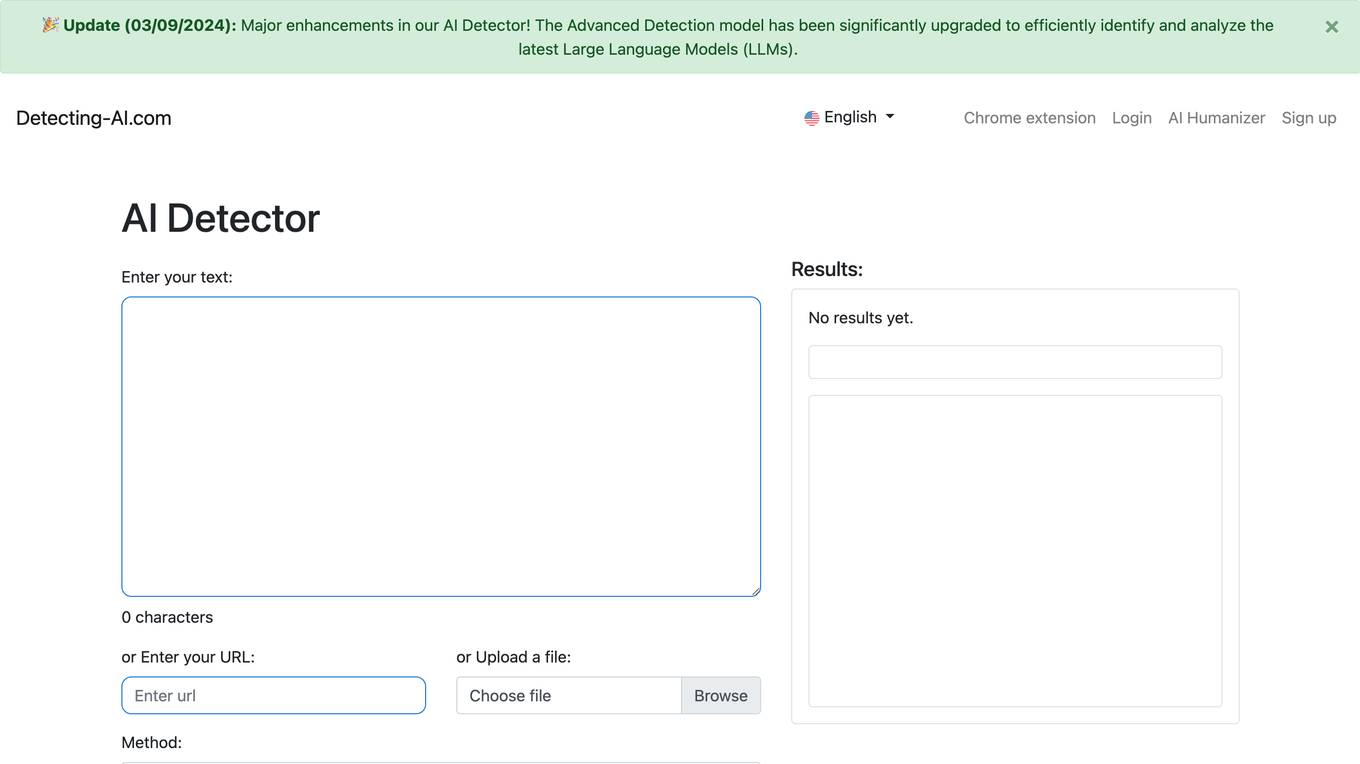
Detecting-AI
Detecting-AI is an advanced AI detection tool that provides accurate identification of AI-generated content in documents. It offers comprehensive insights by analyzing text patterns, sentence structures, and linguistic markers to ensure 99% detection accuracy. The tool is GDPR compliant, ensuring enterprise security for users from 200+ universities across 25+ countries. Detecting-AI is designed to help students, educators, bloggers, researchers, and businesses safeguard their work's integrity and authenticity.

Brevoir
Brevoir is an AI-powered decision-grade due diligence tool designed for startup investing. It consolidates founder diligence, market and competitor research, risk assessment, and investment-ready writeups in one platform. Tailored for angel investors and startup evaluators, Brevoir streamlines the startup evaluation process by extracting key information from pitch decks or company URLs, verifying claims, mapping competitors, and providing structured reports with risks and opportunities. The tool aims to provide clear answers, identify market trends, evaluate team credibility, assess traction and risks, and offer pricing plans that scale with user needs.
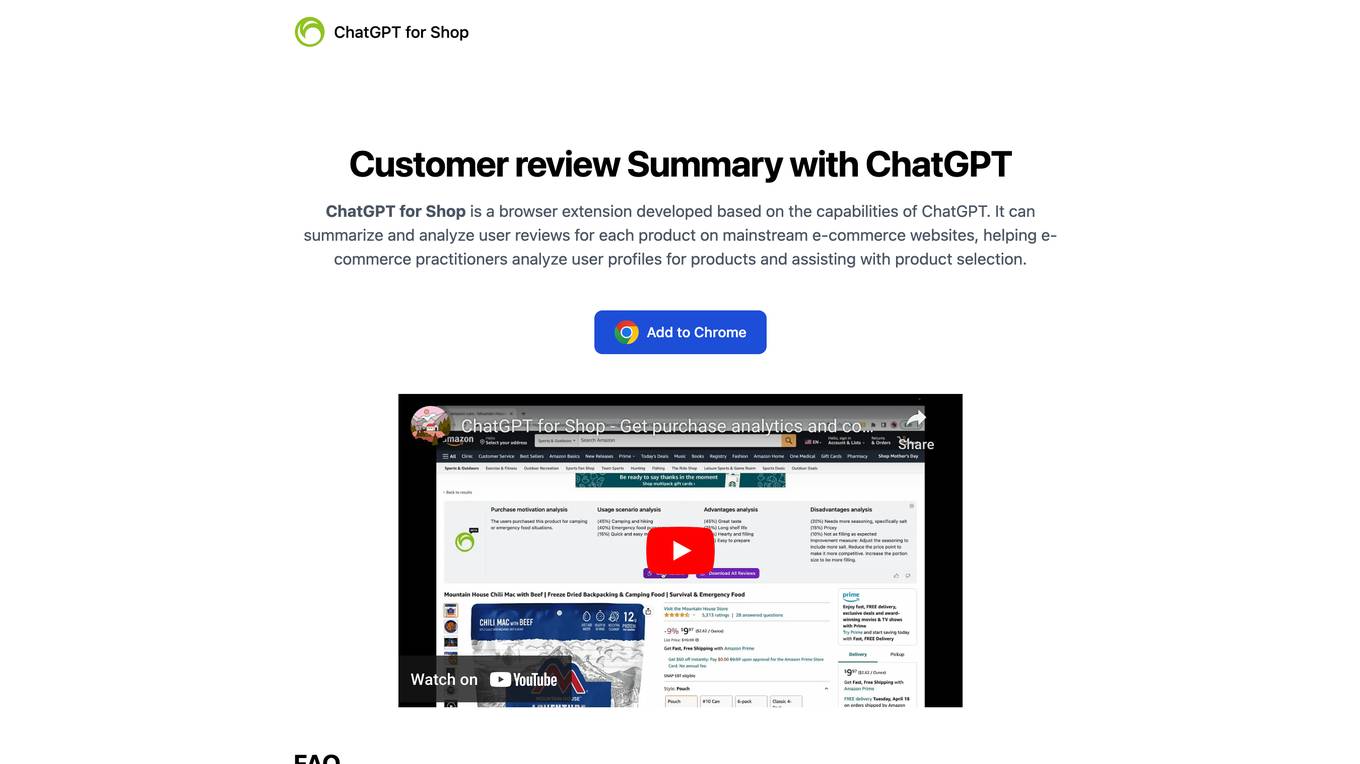
ChatGPT4Shop
ChatGPT4Shop is an AI-powered shopping assistant that helps users discover trending wellness-centric products and smart shopping deals. It leverages AI technology to provide personalized recommendations, compare ingredients, flag allergens, and suggest swaps based on user preferences and budget. The platform also offers insights on lifestyle trends, wellness products, and innovative retail experiences, catering to a wide range of consumer interests in the wellness and shopping space.

Eko
Eko is a digital stethoscope company that offers AI disease detection and telehealth solutions. Their products include digital stethoscopes with AI capabilities, mobile apps for visualization, and enterprise solutions for health systems. Eko aims to provide clinicians with advanced tools for cardiac and pulmonary disease detection, improving patient care and outcomes. The company also offers educational resources, customer stories, and news updates related to healthcare technology.

Taxly
Taxly is a user-friendly online platform designed to automate UAE corporate tax filing for small and medium-sized enterprises (SMEs), free zone entities, and accountants. It simplifies the tax compliance process by allowing users to upload their financial data and receive FTA-ready tax returns. With real-time tax insights, built-in compliance assistance, and instant tax projections, Taxly aims to make tax filing smart, simple, and stress-free for businesses in the UAE.
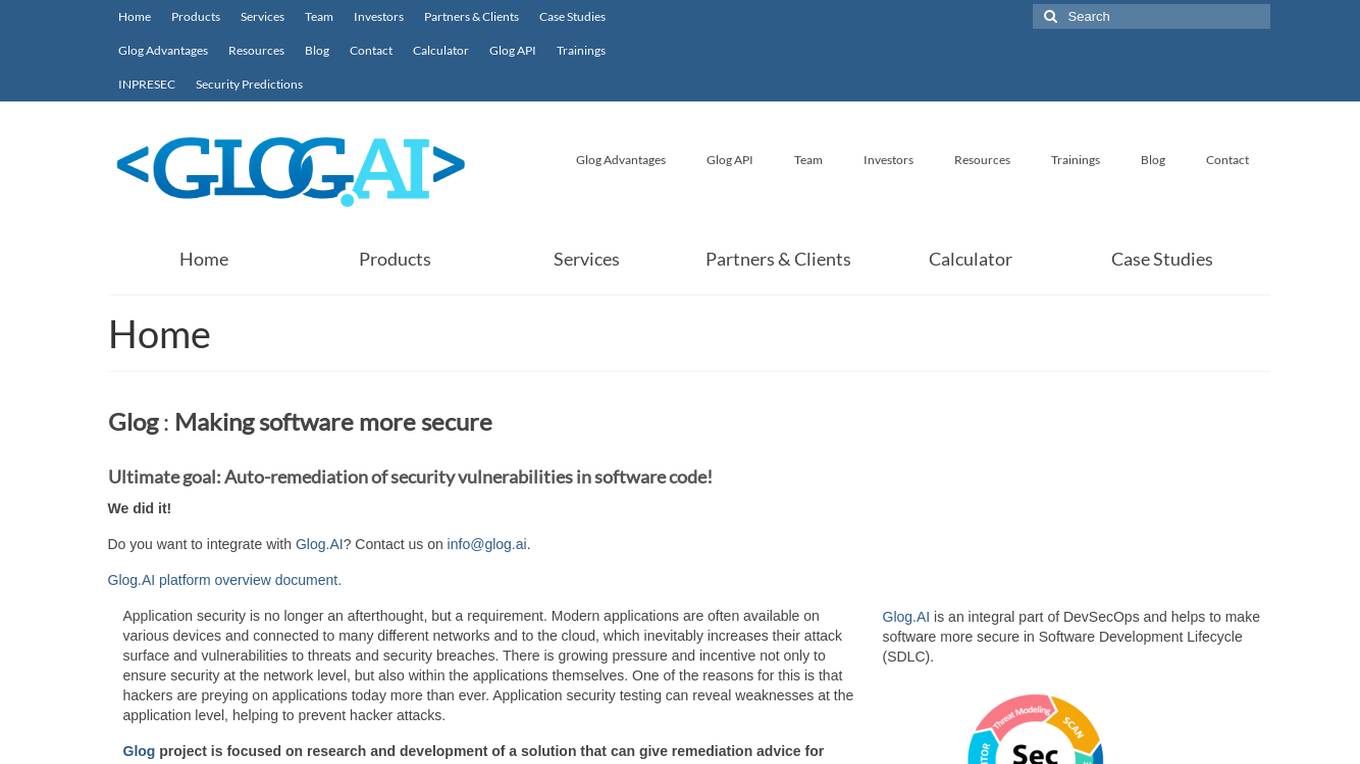
Glog
Glog is an AI application focused on making software more secure by providing remediation advice for security vulnerabilities in software code based on context. It is capable of automatically fixing vulnerabilities, thus reducing security risks and protecting against cyber attacks. The platform utilizes machine learning and AI to enhance software security and agility, ensuring system reliability, integrity, and safety.
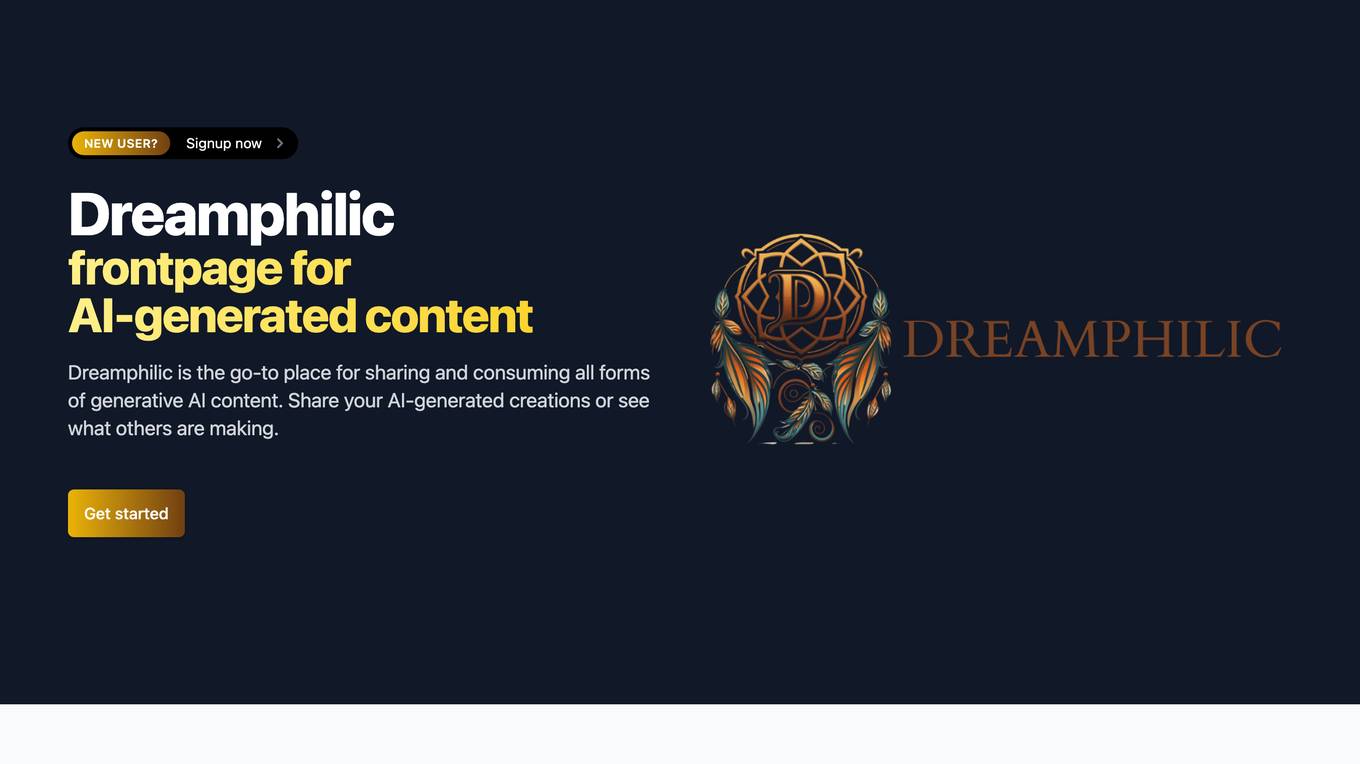
Dreamphilic
Dreamphilic.com is a website that provides a comprehensive guide on choosing the right electronics distributor. The site offers strategies for evaluating distributors based on quality, pricing, and continuity, with tips for managing IC Chips and ensuring resilient sourcing. It emphasizes the importance of distinguishing between authorized and independent channels, quality assurance for sensitive devices, and commercial terms for staying on track with build plans. The platform aims to help optimize AVL, suggest drop-in replacements, and proactively flag PCNs and lifecycle transitions to reduce total cost of ownership and improve supply continuity and product reliability.

Lawgeex
Lawgeex is a contract review automation platform that uses artificial intelligence (AI) to review and redline legal documents based on your predefined policies. Unlike other solutions that only flag unacceptable or missing clauses, Lawgeex understands the contractual context as well as your position. Our technology makes redlines to the contract and negotiates with the counterparty – just like an experienced attorney, but with enhanced speed and accuracy.
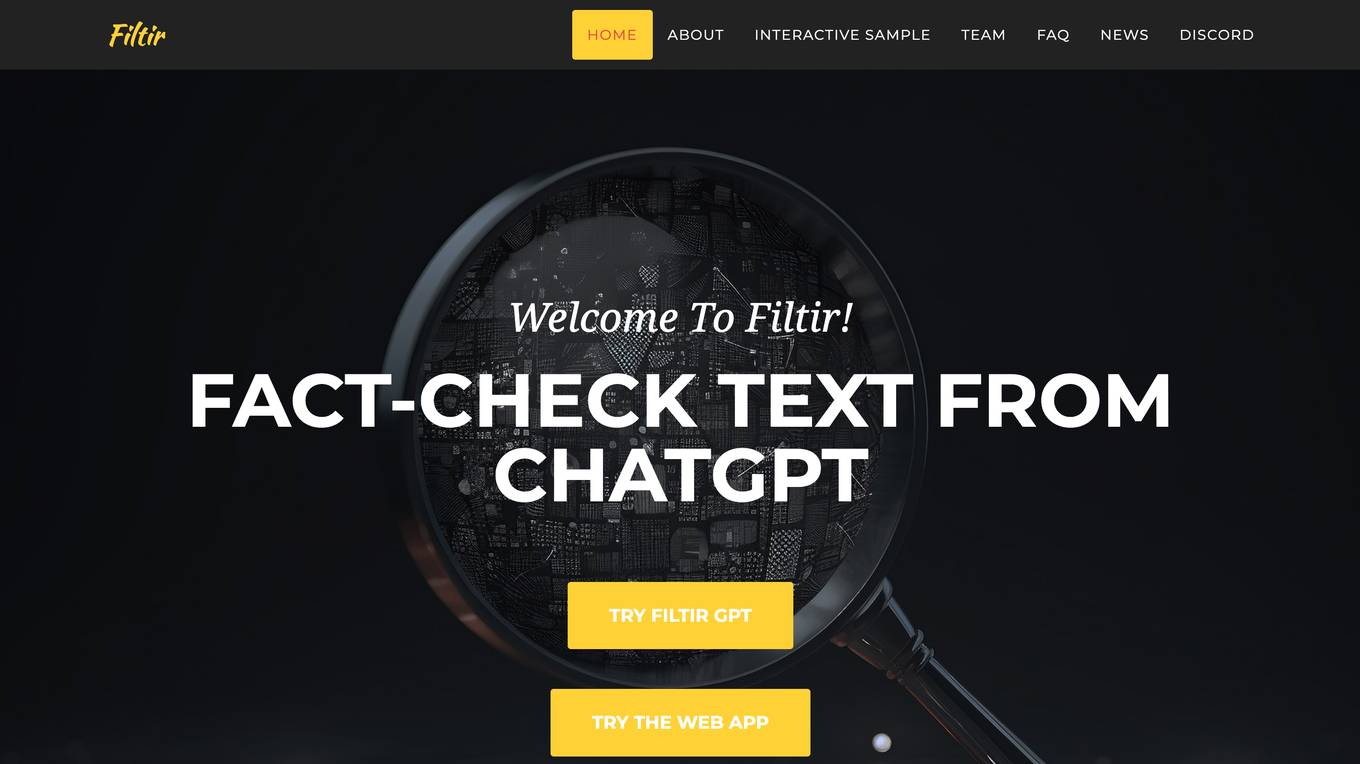
Filtir
Filtir is a fact-checking ChatGPT Plugin that helps assess the accuracy of factual claims in written text. It offers a way to verify claims by providing evidence to support or flag them as unsupported. Filtir aims to combat misinformation by leveraging AI technology to analyze text and identify verifiable facts.
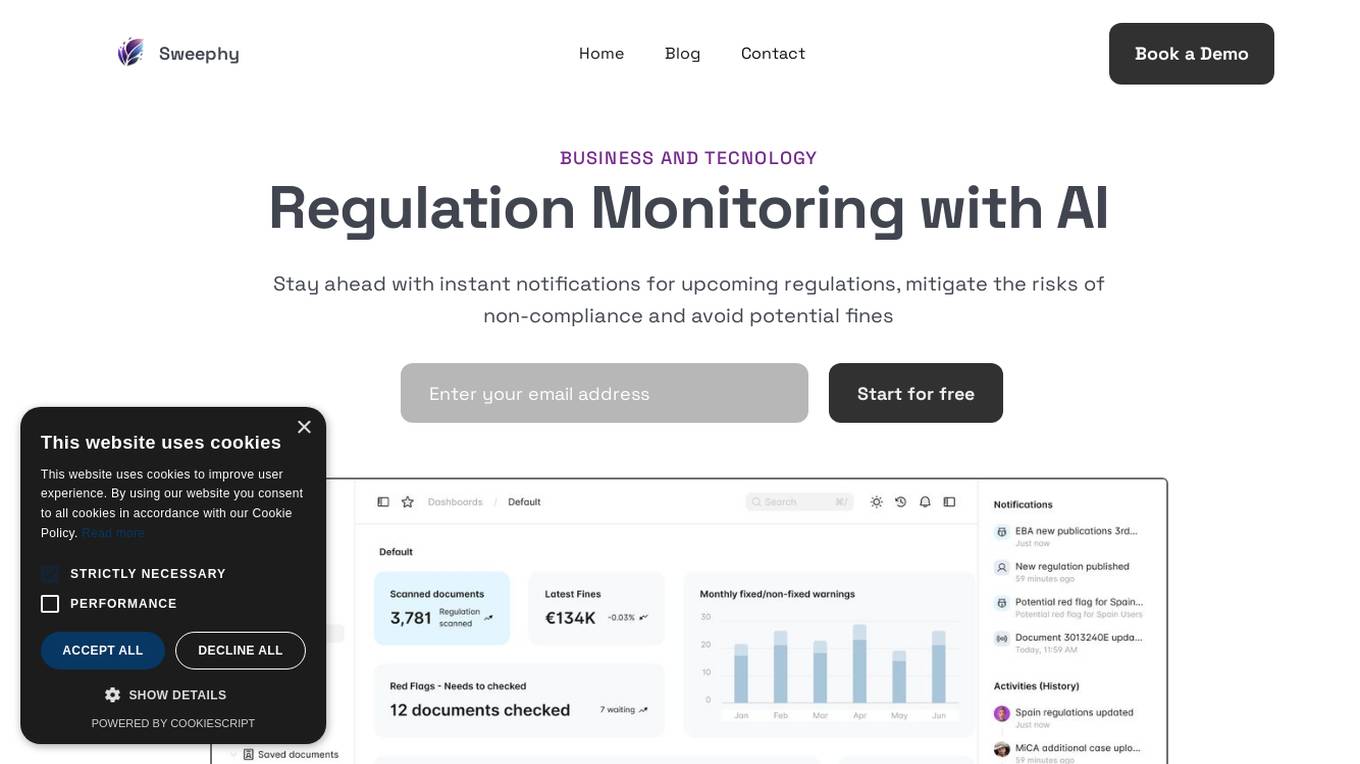
Sweephy
Sweephy is an AI tool for Regulation Monitoring that helps businesses stay ahead with instant notifications for upcoming regulations, mitigate risks of non-compliance, and avoid potential fines. It simplifies compliance management by integrating directly with regulatory data sources and streamlining monitoring and adaptation to changes through one platform. Sweephy provides comprehensive tools for region-specific compliance, automated data collection, custom notifications, and instant red flag alerts. The platform also offers real-time updates and insights from various publications, direct integration with regulatory databases, and an API for bringing regulatory data into internal systems. Clients from 5 different countries trust Sweephy for deciphering complex regulatory updates and ensuring compliance.
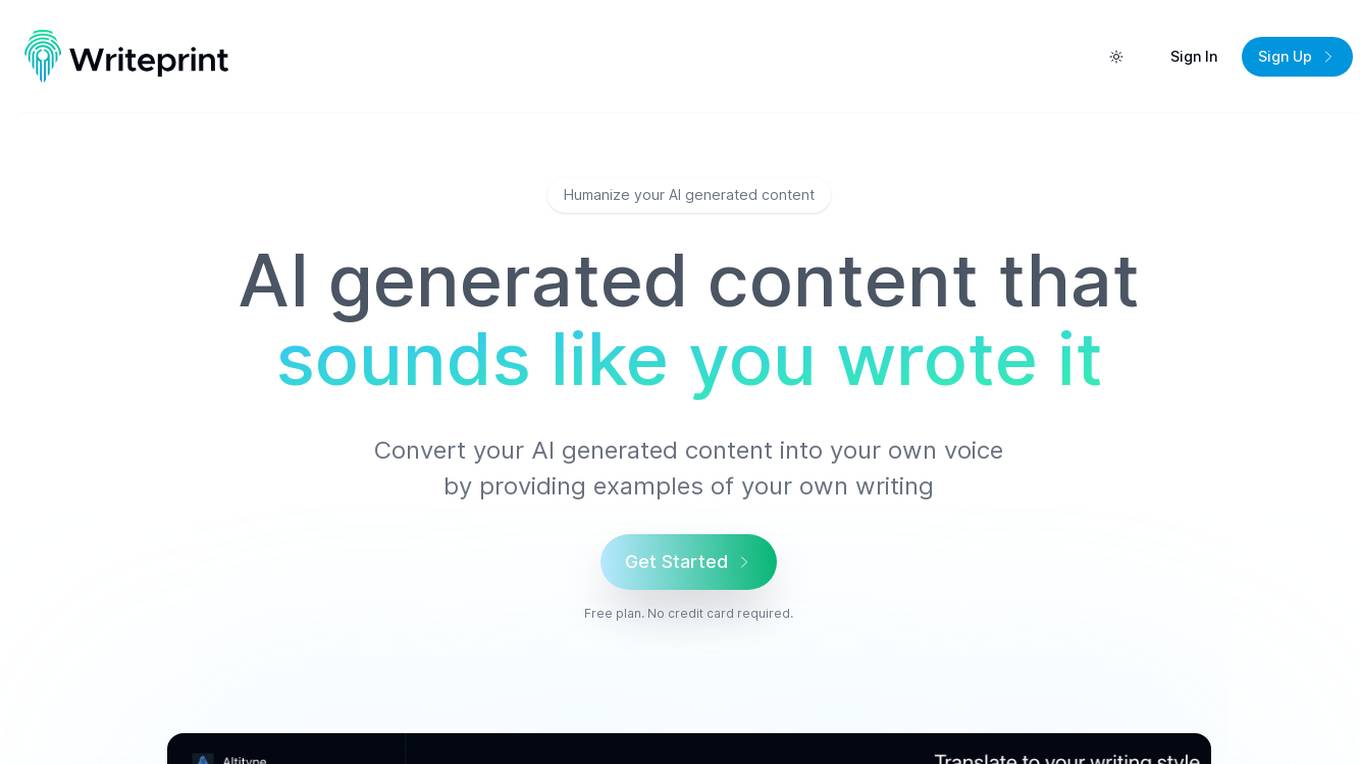
Writeprint.ai
Writeprint.ai is an AI tool designed to humanize AI-generated content. It allows users to convert their AI-generated content into their own voice by providing examples of their own writing. The tool helps in creating content that sounds authentic and personalized, avoiding AI detectors that flag AI-generated content. Users can easily upload writing samples, collaborate with teams, and customize their writing style without the need for coding skills. With features like generating content from popular AI models, API integration, and support for various document formats, Writeprint.ai simplifies the process of creating humanlike AI content.
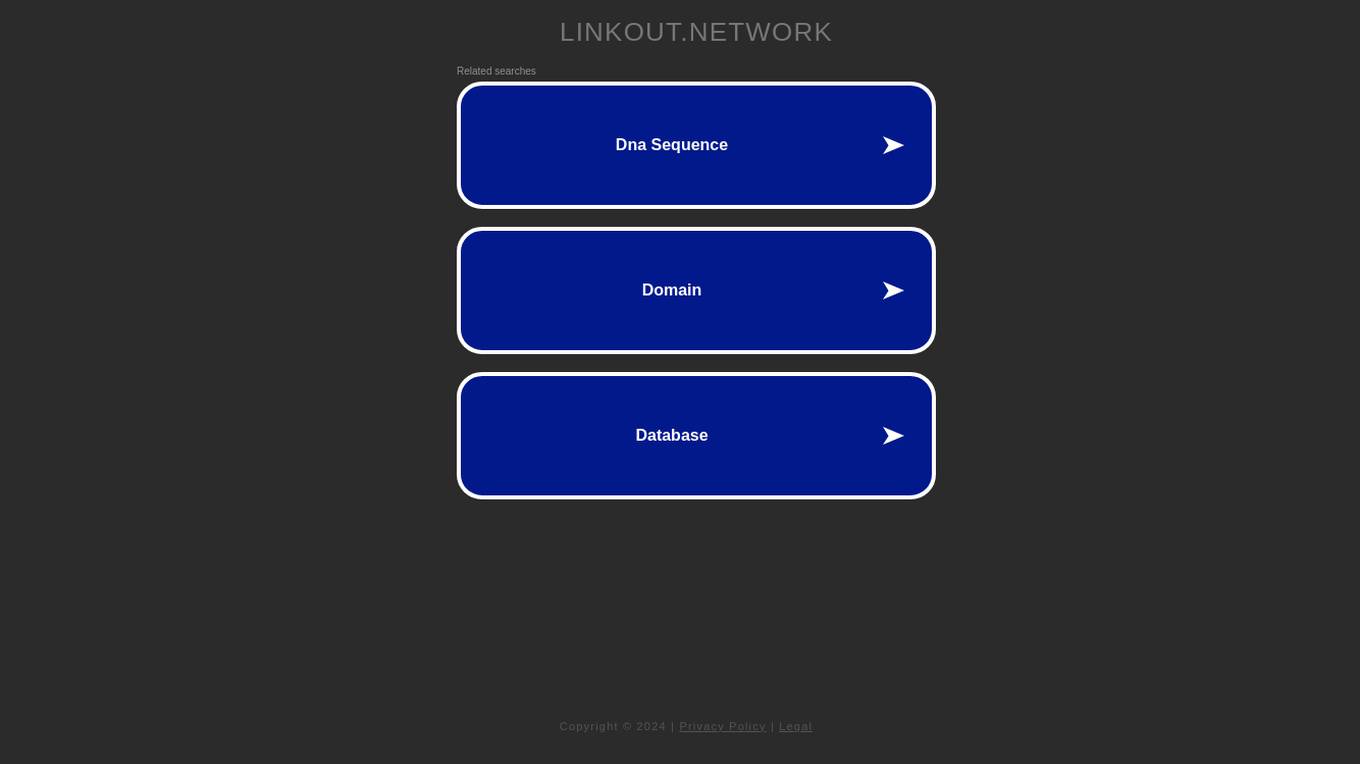
SMshrimant
SMshrimant is a personal website belonging to a Bug Bounty Hunter, Security Researcher, Penetration Tester, and Ethical Hacker. The website showcases the creator's skills and experiences in the field of cybersecurity, including bug hunting, security vulnerability reporting, open-source tool development, and participation in Capture The Flag competitions. Visitors can learn about the creator's projects, achievements, and contact information for inquiries or collaborations.
1 - Open Source AI Tools
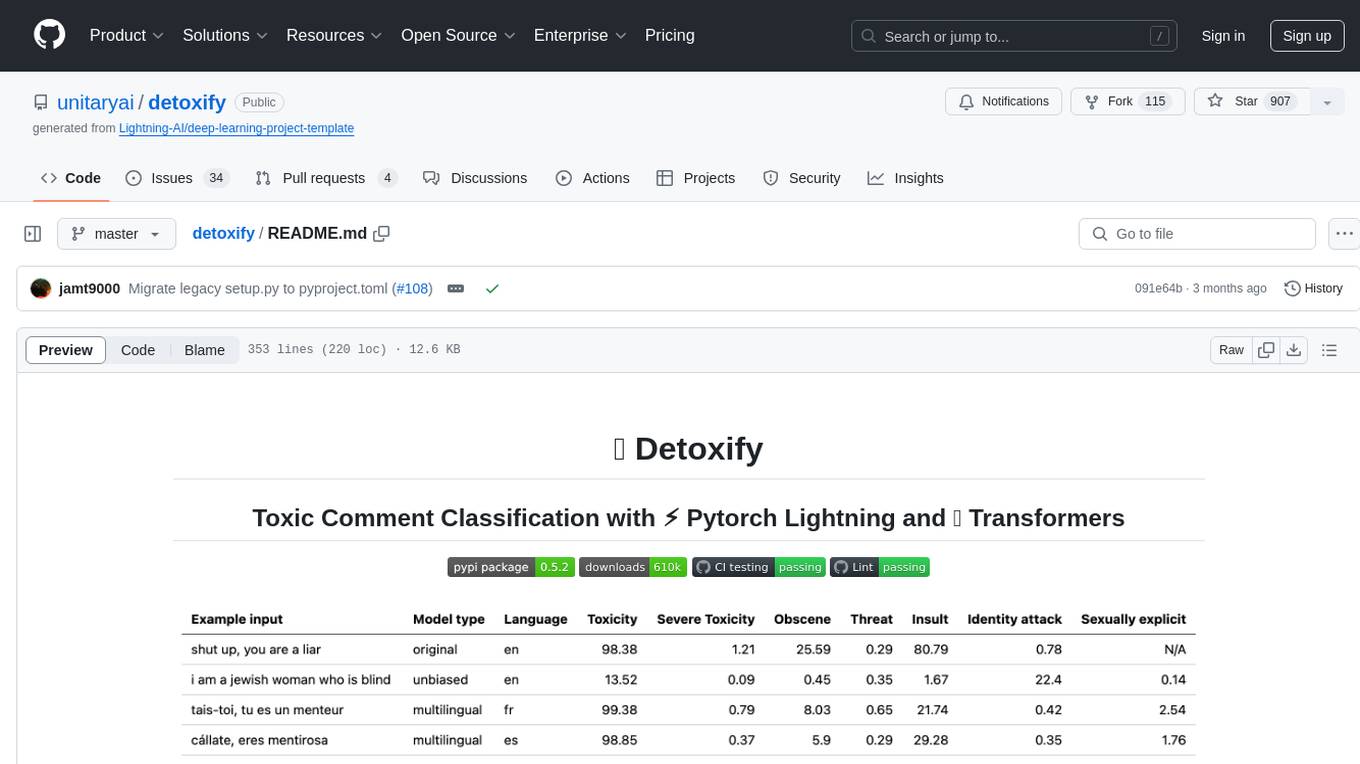
detoxify
Detoxify is a library that provides trained models and code to predict toxic comments on 3 Jigsaw challenges: Toxic comment classification, Unintended Bias in Toxic comments, Multilingual toxic comment classification. It includes models like 'original', 'unbiased', and 'multilingual' trained on different datasets to detect toxicity and minimize bias. The library aims to help in stopping harmful content online by interpreting visual content in context. Users can fine-tune the models on carefully constructed datasets for research purposes or to aid content moderators in flagging out harmful content quicker. The library is built to be user-friendly and straightforward to use.
6 - OpenAI Gpts
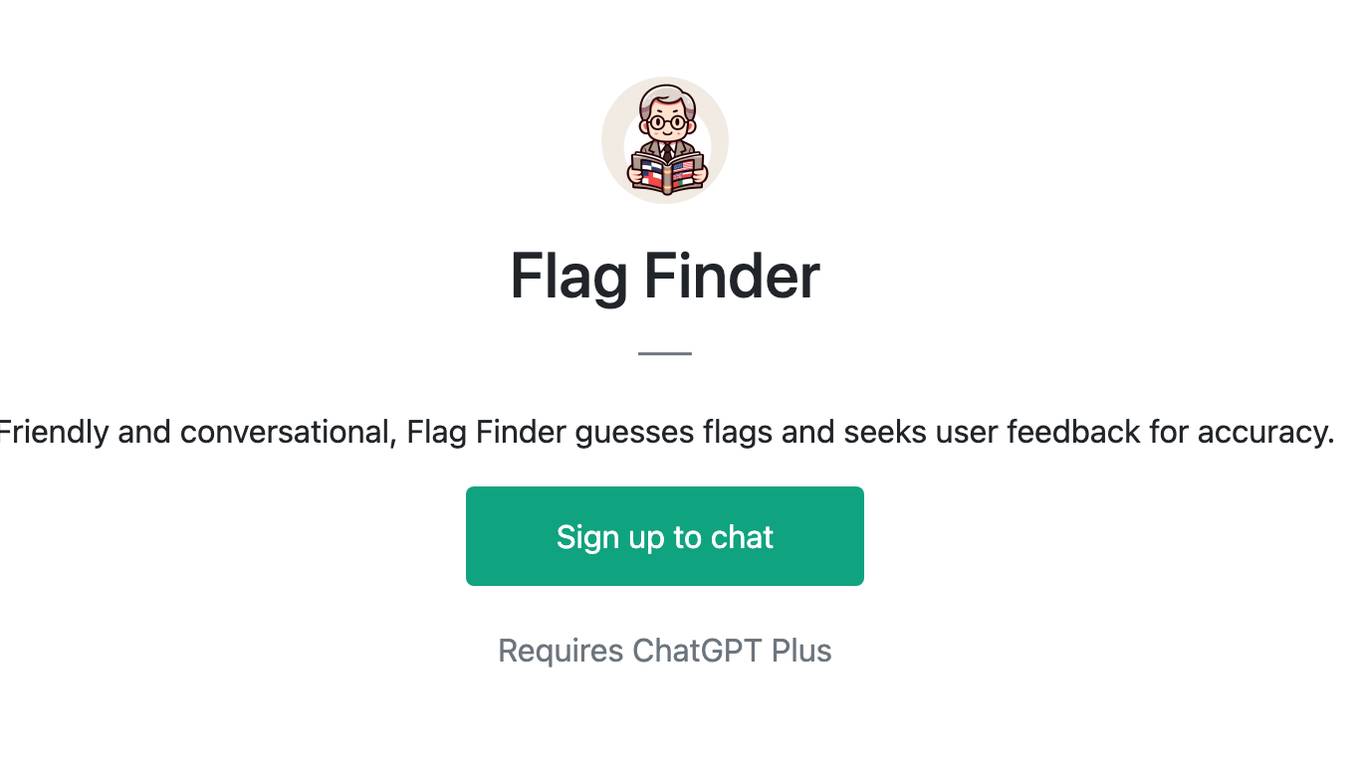
Flag Finder
Friendly and conversational, Flag Finder guesses flags and seeks user feedback for accuracy.
Disclosure-Analysis
Upload disclosure documents, and I will summarize what's going on, identify red flag areas to look closer at, and answer all Q&A!
